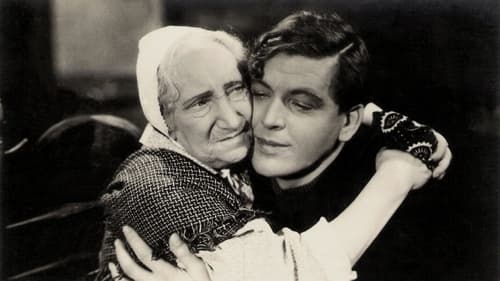
When his colleague presents him with (forged) evidence of his wife Sylvette's unfaithfulness, factory owner Jean Sourdier kills him in a fit of rage. After fifteen years in prison he is determined to take revenge on his wife by killing Ninette, a daughter from her second marriage.

Reder Bos
Fisherman’s widow Kniertje urges her two younger sons to set sail on the ‘Op hoop van zegen’, a heavily insured floating wreck which duly goes down in a storm. Kniertje is left behind, alone and lonely. Based on Herman Heijermans’ socialist-inspired Dutch theatre classic.

Carl Peterson
A captain saves a kidnapped magnate from a nursing home run by foreign agents.

Kapitein Beets
Unaware of its contents, kind-hearted captain Beets delivers a package containing smuggled diamonds to Balthazar, the far from honest owner of an Amsterdam dance-hall. To double his profit, Balthazar shoots the innocent captain in cold blood and makes it appear as if Beets has committed suicide. The captain's daughter Eva and her sweetheart, young author Willy Vermeer, see through Balthazar's plans and will not rest until the criminal is punished for his deed.

Gaston de Roqueville
The wealthy De Roquevilles, the family of alcoholic veteran Jean Laurent, and that of farmer Godard; all have to deal with the outbreak of the Great War. To complicate things even more, Godard's daughter Anny falls in love with young Mario Laurent, who turns out to have inherited some of his father's vices. First part of Maurits Binger's epic silent trilogy.

Lona, a young woman who has no memories of her past, has been adopted by the rich industrialist Van Haaften. She is loved by Henri van Rhenen, a neighbour whose mother still mourns the loss of her daughter, who disappeared twenty years ago under mysterious circumstances. Lona has another suitor, Frans van Borselen, who hopes to marry her so that he can pay his gambling debts with her foster-father's money. Van Haaften discovers that Frans has been cheating at cards and offers him a revolver so that he can end his life honourably.

Willem Berg
The secret from the title is the lost recipe for shiny Delft pottery, that Jan Vogel is desperately trying to rediscover. For his attempts he needs platinum, but the funds run out because the factory owner Van Haaften has lost his money in stock-speculations. Luckily for Jan, he finds a farewell letter in the park, including a large sum of money. Meanwhile, the owner's son Leo confesses his love for Jan's daughter Annie, but Van Haaften forbids their marriage.

Reinout
Married housewife Alda decides to become a singer under the stage name 'La Renzoni', in a duo-act with her father. All goes well, until her husband mistakes her father for her lover...

Rudolf von Zwenken
When his granddaughter is born, debt-ridden Colonel von Zwenken misses out on Aunt Roselaar's allowance of 20,000 guilders. Anxious to keep the money, his son-in-law telegraphs the aunt that a son was born, Frans, and the girl is brought up as a boy. Based on the novel by Anna L.G. Bosboom-Toussaint.

Hendrik van Norden
Young poacher Hendrik van Norden has seriously wounded a game-keeper, who has not recognized him. There was, however, one witness: captain Van Oort, but he promises to keep silent. Five years later Hendrik has become a lighthouse-keeper and is courting Annie. Van Oort is also trying to win Annie's affections, and in his jealousy he decides to remind Hendrik of what he knows about his past...

Graaf Alfred van der Loo

Willem van Dalen

Hendrik

Apache

Short feature film about a colonist who gets caught up in the revolution in Mexico. Back at home, they anxiously wait for news. A Telegram from Mexico is one of the short fictional films that Filmfabriek Hollandia produced before the First World War. The film, directed by Louis H. Chrispijn Sr., tells the story of Willem Vandoorn, a Dutch colonist in Mexico. When the revolution breaks out, the young man decides to go back to his homeland. He sends his parents a telegram announcing his planned return. When his journey is delayed by a rebel attack, his parents - already worried about the many dramatic newspaper articles - fear the worst. These nervous suspicions even lead the blind father to have a vision, in which he sees his son's execution.

René Raneck









